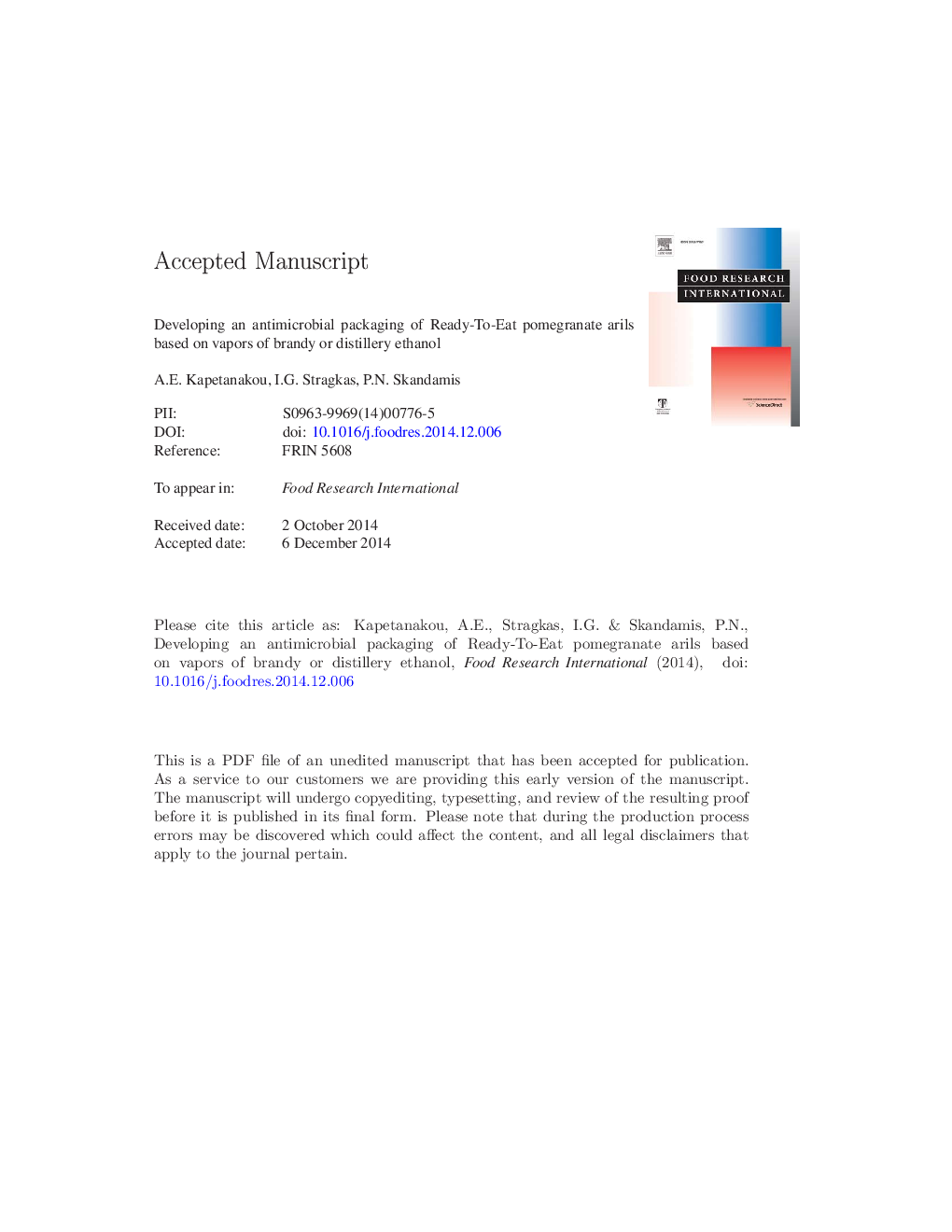| Article ID | Journal | Published Year | Pages | File Type |
|---|---|---|---|---|
| 6395566 | Food Research International | 2015 | 41 Pages |
Abstract
Despite the increasing pomegranate consumption, the ready-to-eat (RTE) arils are highly perishable and this negatively impacts their commercialization. Nowadays, mild pre-packaging decontamination interventions (washing with sanitizing agents or exposure to ultraviolet light) in sequence or not with modified atmospheres packaging technologies are applied. Even though, the latter combination of methods provides them a shelf-life of 10-14 days at cold storage, several negative effects have been also reported (i.e., degradation of anthocyanins). Thus, the aim of the study was to evaluate the effect of alternative, mild antimicrobials such as the vapors of distillery ethanol and brandy on microbial, physical, textural, sensorial, and multispectral imaging attributes of RTE arils during storage at different temperatures in perforated bags. Lactic acid bacteria (LAB) and yeasts/moulds were the dominant spoilage microbiota of RTE arils, regardless of storage temperature and antimicrobial. Vapors produced by both volatile antimicrobials significantly inhibited (p < 0.05) the growth of LAB and yeasts/moulds, at all storage temperatures. For instance, at 4 °C, when population of TVC on controls was 6.9 log CFU gâ 1 (day 23), the respective counts on arils treated with distillery ethanol or brandy followed the order: 4.9 log CFU gâ 1 (1 mL of ethanol) > 3.9 log CFU gâ 1 (1 mL of brandy) > 2.2 log CFU gâ 1 (2 mL of ethanol) > 1.2 log CFU gâ 1 (2 mL of brandy). Moreover, arils exposed to distillery ethanol and brandy vapors showed lower weight loss (%) compared to controls, while the firmness was reduced, regardless of treatment and storage temperature. Color measurements and evaluation of multiple sensory attributes revealed that arils exposed to brandy vapors showed more intense red color and look fresher compared to controls for longer storage time. The latter observation was also validated by multispectral image analysis, since the results suggested that arils packaged with distillery ethanol or brandy maintained their anthocyanin and carotenoids content at higher levels than controls, at 4 °C. Thus, such preservation methods may open new perspectives on mild antimicrobial packaging in order to extend shelf-life of perishable minimally processed fruits, like pomegranate RTE arils.
Related Topics
Life Sciences
Agricultural and Biological Sciences
Food Science
Authors
A.E. Kapetanakou, I.G. Stragkas, P.N. Skandamis,
